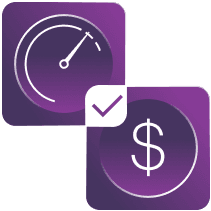IT outsourcing for startups opens up opportunities to scale, access expertise, and focus on growth. But what exactly does outsourcing involve, and how can it help startups thrive?
In this guide, we’ll break down the benefits of outsourcing for startups and highlight the key functions you can delegate to external experts.
What Is Outsourcing?
At its core, outsourcing involves contracting external professionals or organizations to handle tasks or functions typically performed in-house. Instead of hiring full-time employees, small businesses can outsource projects or ongoing tasks to skilled individuals or firms.
Outsourcing for startups goes beyond just cost-cutting. It’s a powerful strategy to gain access to specialized skills, allow dynamic scaling, and maintain agility in a competitive market. Whether it’s outsourcing software development for startups or customer support, the flexibility this approach offers can be invaluable for young, growing businesses.
The Benefits of Outsourcing for Startups
Let’s focus on the merits this software development approach can bring.
Reducing Operational Costs
Startups often operate with constrained budgets. Beyond the cost of salaries, hiring an employee includes expenses like benefits, human resources training, and office space. IT outsourcing for startups provides access to skilled developers without the price tag of a full-time tech team.
Scaling Operations Efficiently
Startups often experience unpredictable growth spurts. One month you’re preparing for launch; the next, you’re scrambling to ensure customer satisfaction. Outsourcing startups allows you to scale operations quickly without the headaches of traditional hiring.
Improving Workforce Productivity
Trying to do everything in-house often spreads teams too thin, leading to decreased productivity. Startup outsourcing can alleviate this by handling time-consuming tasks, freeing your team to focus on high-value work.
Flexible Staffing for Changing Needs
Startups thrive on adaptability. Outsourcing provides staffing solution for startups tailored to your immediate needs. Outsourced teams can flex to meet your changing workload without long-term commitments.
Prioritizing Strategic Business Tasks
For many startup founders, the question isn’t whether they “can” handle certain tasks—it’s whether they should. Outsourcing non-core or mundane tasks, such as payroll management or data entry, allows founders to focus fully on strategy and innovation.
Accessing Specialized Skills
Outsourcing gives startups access to a broader talent pool than they might find locally. This is especially true for industries requiring cutting-edge expertise, such as AI operations and digital marketing analytics.
Key Processes Startups Can Outsource
Now that we’ve covered the benefits of outsourcing for startups, the next question is what to outsource.
1. Software development
Outsourcing software development for startups allows you to create high-quality apps, websites, or platforms at a fraction of the cost. Companies often rely on IT outsourcing to bring on skilled developers from global talent pools.
2. AI Operations
Outsourcing AI operations vital to business functions is probably one of the biggest pros of outsourcing in 2025. This way, your startup may access cutting-edge technologies like ML and data modeling without the need for an in-house AI team.
3. Task-based Work
Repetitive, task-based work is ideal for outsourcing. Think data entry, bookkeeping, or order processing. These tasks are crucial for operations but don’t usually require in-house expertise.
4. Customer Support
Outsourcing customer support is a lifeline for startups. Not all of them can afford to staff a 24/7 support team but still want to deliver excellent service.
5. Recruitment and Hiring
Hiring the right talent can make or break a startup. Resort to a startup outsourcing company that can manage the end-to-end hiring process for you, from posting jobs to vetting candidates.
6. Administrative and Back Office Functions
Administrative tasks like payroll, HR compliance, and bookkeeping can bog down startups. Outsourcing for startups is a chance to delegate these functions to reputable firms. Meanwhile, you and your team can focus on strategic priorities.
I'd like to outsource the development of my app to the vendor with credibility. Book a 30-min. consultation
Request a free callHow to Select the Right Outsourcing Partner
With countless vendors and varying models to choose from, finding the perfect startup outsourcing business can be challenging. Consider the factors listed below.
Risks of Focusing Solely on Cost
One of the risks of outsourcing software development is opting for a low-cost vendor. Startups are often tempted by low prices only to later face spiraling costs from rework, additional support, or misunderstandings. It may ultimately cost more—time, money, and credibility—than hiring an experienced partner from the outset.
Evaluating Reputation and Client Feedback
A solid reputation speaks volumes. Before making any commitments, thoroughly research the potential startup outsourcing company. Look for these key indicators:
- client testimonials and reviews on platforms such as Clutch or Trustpilot
- portfolio of work showcasing completed projects relevant to your industry
- case studies that demonstrate success with companies of a similar size and stage
Choosing Between Fixed Price and Flexible Contracts
Your outsourcing agreement sets the stage for your partnership. Two common models dominate the market – fixed price and time-and-materials (T&M) contracts. Here’s how to weigh their pros and cons:
 Choose the model that aligns best with both your resources and workflow.
Choose the model that aligns best with both your resources and workflow.
Recognizing Communication Gaps Early
Effective communication can make or break your outsourcing relationship. Address the following questions when evaluating the startup outsourcing company’s communication style:
- Are they responsive during the evaluation stage?
- Do they provide clarity on timelines, deliverables, and processes?
- How do they handle feedback or revisions?
When Should Startups Consider Outsourcing Technology Development?
If your startup faces one or more of these challenges, outsourcing might be the key to unlocking rapid growth:
- Limited Technical Resources: If you lack an in-house development team or expertise in critical domains.
- Budget Constraints: Outsourcing lets you scale capabilities without hiring full-time employees.
- Strict Timelines: External teams can help startups speed up product development.
- Focus on Core Business: Outsourcing non-core activities allows founders to focus on strategy, growth, and innovation.
Startups working on software for the first time often find outsourcing indispensable. You'll harness the expertise of seasoned developers while maintaining focus on growing your startup.
How the Outsourcing Process Works
Whether it's for outsourcing software development for startups or other services, a typical outsourcing process often involves these steps:
- Define All Requirements: Outline your objectives, must-have features, and timelines. Transparency minimizes room for error.
- Shortlist Vendors: Evaluate vendors based on reputation, case studies, and alignment with your vision.
- Request Proposals: Break down your requirements and request quotes to compare deliverables vs. costs.
- Conduct Interviews: Assess their expertise, ask about their workflow, and clarify cultural or timezone overlaps.
- Sign an Agreement: Finalize terms like payment schedules, communication protocols, and intellectual property. The key is collaboration. Even with external teams, consider them an extension of your business
Outsourcing for Startups: Software Development with Clover Dynamics
We, at Clover Dynamics specialize in supporting startups by providing end-to-end solutions for startups like:
- Custom Software Development
- Cloud Integration
- UI/UX Design
For startups, our team is ready to provide tailored solutions, transparent communication, and an agile development approach. By leveraging our experience in providing IT resource and outsource for startups, you can ensure your tech is in reliable hands while you focus on scaling operations.
See what one of our clients, Jaouad Al-Khaliki, Chief Technology Officer at The Taken Seat, said about our team:
"Strong partner for our startup."
"We met Clover in December 2020, and they have been through deep thinking, rebuilding, and continuous development with us. They not only provided excellent software developers but stellar project and product management and this is the part where they deeply differentiate from others. Their project and product management skills go to the details and DNA of our product. They are simply part of our company in how they feel our pains and develop and fix our product. Priceless".
Frequently Asked Questions (FAQ)
Is outsourcing better suited for short-term or long-term needs?
Outsourcing can be strategically advantageous for both short-term and long-term needs, but it excels particularly in short-term scenarios.
How do I know if outsourcing is more cost-effective than hiring in-house?
Outsourcing often offers a more predictable expense model, with fees tied directly to services rendered. Plus, you can explore multiple service providers' fees and pick the one that fits you.
When should a startup avoid outsourcing?
If the task is integral to customer support experience or product development, it's best to handle it in-house. Additionally, outsourcing may not be advisable when the startup lacks clear goals or operational frameworks.
How can startups measure the success of their outsourcing efforts?
Track metrics such as cost savings, quality of deliverables, turnaround times, and the impact on core business processes.
What are the risks of outsourcing and how can they be mitigated?
Outsourcing carries inherent risks, including potential quality control issues, communication barriers, and dependency on third-party services.







